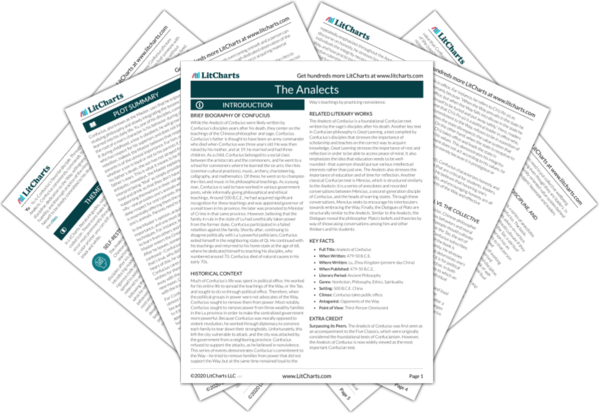This moment again suggests that being a good child means deferring to the absolute authority of one’s parents. Even if children know that what their parents are doing is morally wrong, Confucius implies that children should choose to obey their parents over correcting wrong behavior. This may be surprising, given Confucius’s interest in honesty and virtue—clearly, familial duty, traditional hierarchies, and deference to one’s immediate family and ancestors are all far more important to him.
